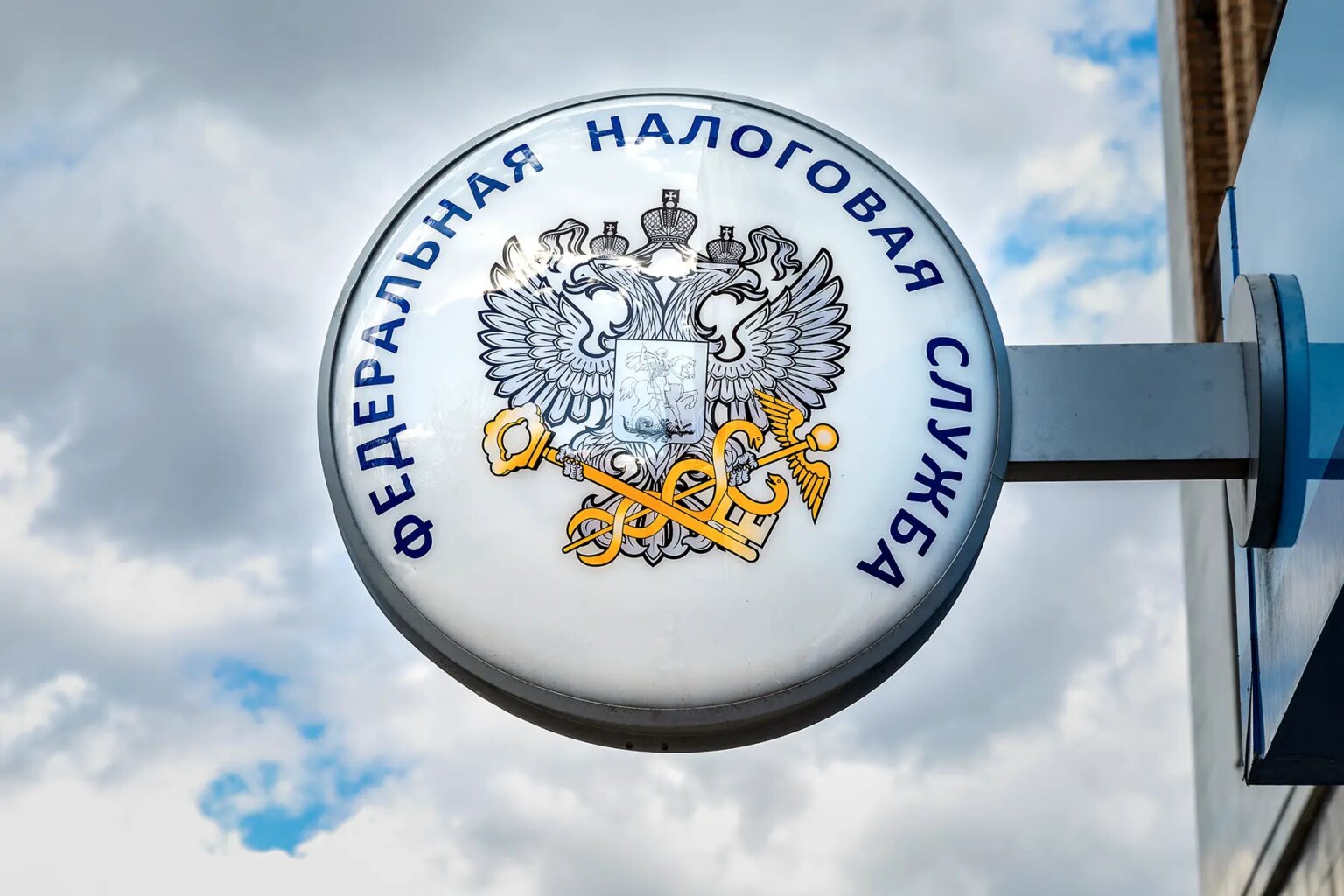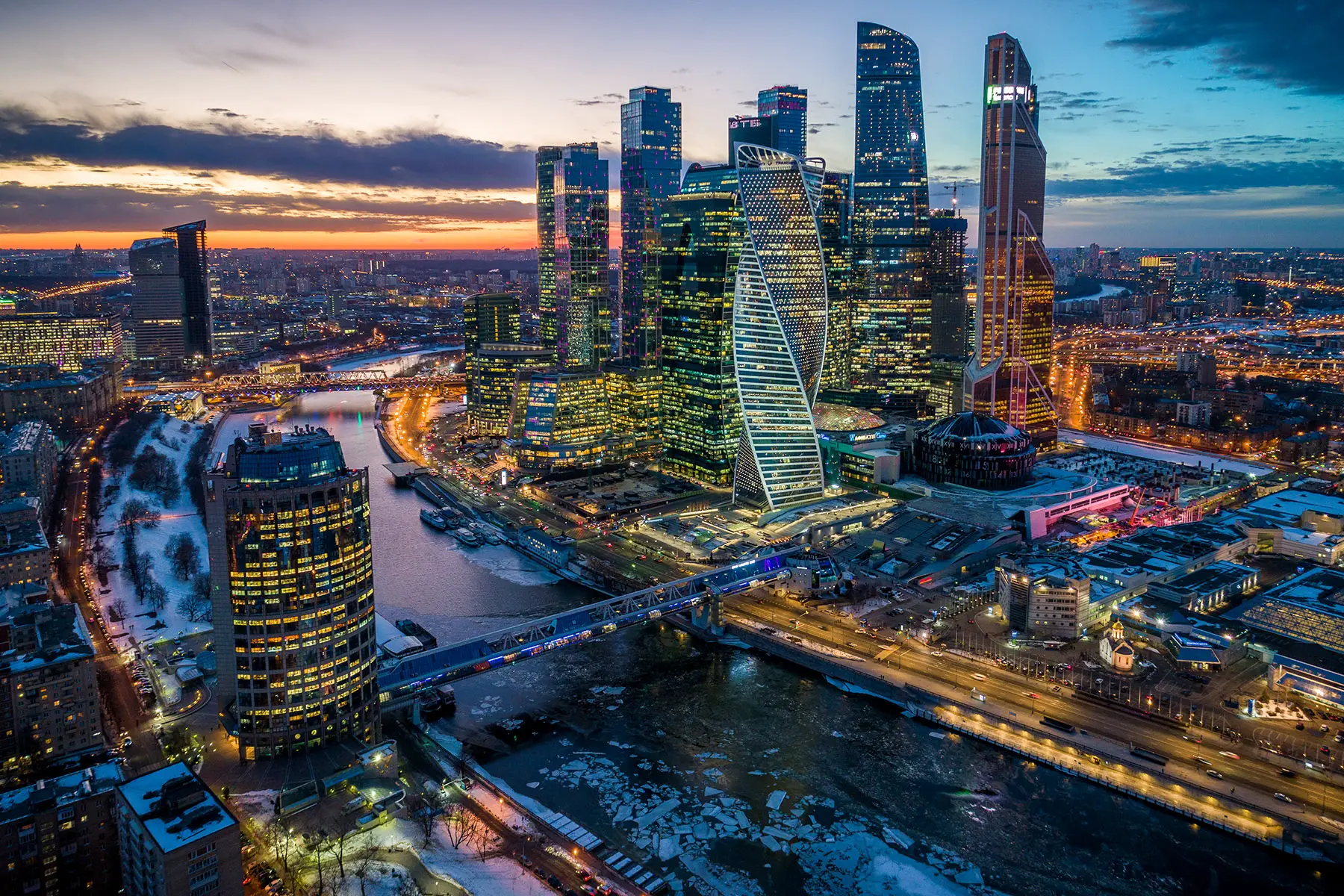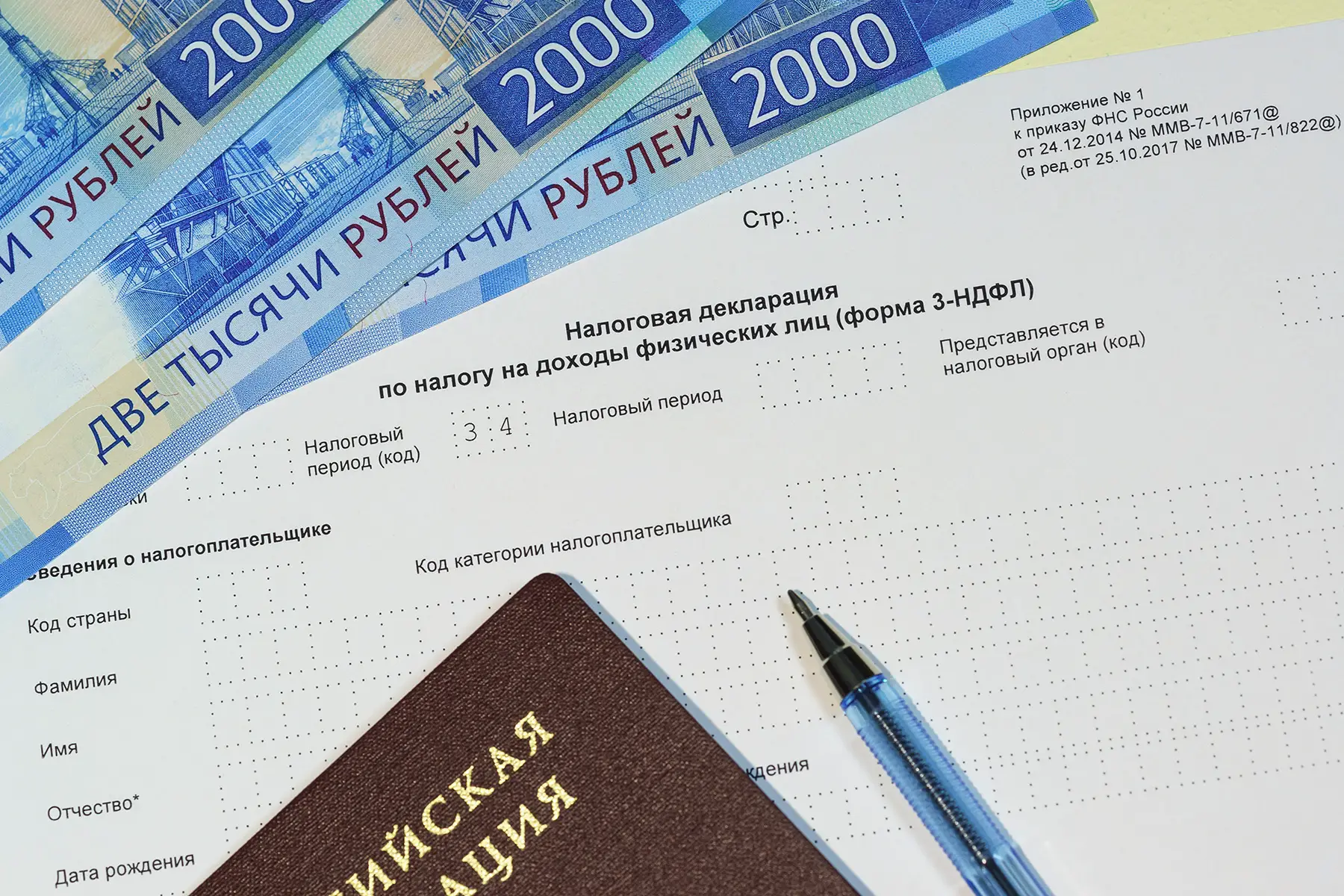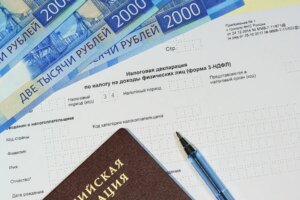Important notice from the Editor in Chief
Maintaining our Russian site is a delicate matter during the war. We have chosen to keep its content online to help our readers, but we cannot ensure that it is accurate and up to date. Our team endeavors to strike the right balance between giving information to those who need it, and respecting the gravity of the situation.
The Russian word for tax is налог (nalog) and the current tax system is based on a code enacted and adopted in three stages, from 1998 to 2003.
As of 2023, taxes in Russia account for around 12.4% of the country’s GDP following a series of reforms over the previous decade.
For expats, the starting point for determining your tax position depends on your residency status. As such, this status affects what elements of your income are subject to tax and how much you pay.
Read on for an overview of the tax system in Russia, with sections including:
- The tax system in Russia
- Federal, regional, and local taxes in Russia
- Taxes on goods and services (VAT) in Russia
- Who pays taxes in Russia?
- Russian tax system and foreign pensions
- Income tax rates in Russia
- Russian income tax deductions
- Property and wealth taxes in Russia
- Inheritance and gift tax rates in Russia
- Corporate tax rates in Russia
- Advice on tax rates in Russia
- Useful resources
The tax system in Russia
In Russia, the Ministry of Finance governs the country’s tax authority (Federal Tax Service of Russia), which manages taxes.
The Russian tax year runs from 1 January to 31 December. You should submit tax returns to the Federal Tax Service using a form called Tax Declaration (Налоговая Декларация). Returns must arrive by 30 April, and the final date to pay your taxes in Russia is 15 July.
The Federal Tax Service’s website provides some information in English, though more information is available in Russian.
In 2021, Russia implemented a progressive income tax system, with earnings split into two bands. In 2025, the two band system was replaced by a new five band system, with tax rates ranging from 13% to 22%.
Non-residents pay 13%, 15%, or 30%, depending on their employment status and the source of their income.
Federal, regional, and local taxes in Russia
Russia’s Tax Code determines three levels of taxation: federal, regional, and local. Currently, federal taxes include:
- Corporate profits tax
- Excise taxes
- Individual income tax
- Mineral extraction tax
- Unified social tax
- VAT
- Special tax regimes
- Several others
On the other hand, regional and local taxes in Russia focus on assets. Regional taxes include corporate property tax, vehicle tax, and gambling tax, while local taxes comprise land tax and individual property tax.
Taxes on goods and services (VAT) in Russia
VAT (налог на добавленную стоимость – НДС) is levied at the benchmark rate of 20% when purchasing goods and services. There is a lowered VAT in Russia on certain things such as food, shoes, some medical items, and children’s clothes. This is 16.67%.
On other necessary items, including education, medical items, public housing, and traditional financial products, zero VAT applies. Russian VAT also applies to imports but not typically exports, and goods always include it in the price.
Can you get a refund on VAT?
Visitors to Russia can get a refund on VAT. However, it is not possible for those living in Russia, or for citizens of the Eurasian Economic Union countries (EEU – Armenia, Belarus, Kazakhstan, Kyrgyzstan, and Russia).
In order to be eligible, shop at selected retailers officially communicated by the Ministry of Industry and Trade (Министерство промышленности и торговли, also known as Минпромторг).
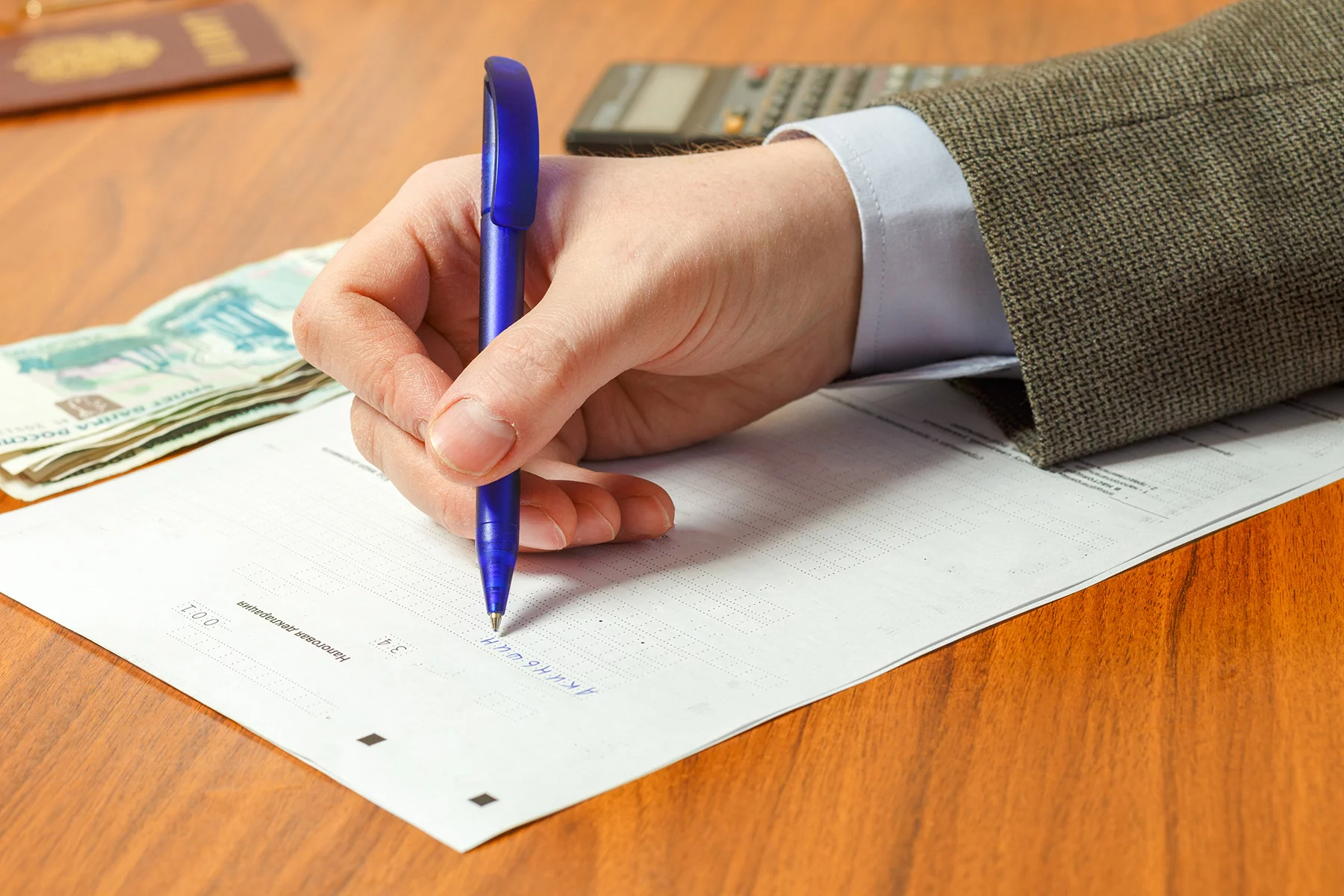
The minimum purchase amount is 10,000 ₽ per retailer per day at a differential refund rate as follows:
- Up to 20% on a wide variety of goods including fashion, technology, watches, and jewelry
- Up to 10% on other goods including food, medicine, and books
You’ll need to ask the store for a VAT check or refund form. A customs officer must then stamp this at the airport or port you depart through. The officer will ask to see your ticket, purchase receipts, and may want to inspect the goods you’ve bought. These should ideally have their original tags or labels intact.
You can take your validated form to a VAT refund office or agency to get your money. Refunds come either in cash or via a refund to your credit card. Several agencies have the authority to refund VAT taxes in Russia, including Premier Tax Free, Global Blue, National Operator Tax-Free, and Hi Sky.
Bear in mind that due to sanctions, it may be more difficult to receive refunds to your foreign bank account.
If you’re leaving Russia but traveling within the EEU, you won’t be able to claim a refund.
Who pays taxes in Russia?
Any foreigner who receives an income from a Russian source has to pay personal income taxes in Russia. If you live in the country for more than 183 days per year and have a Russian residency permit, your tax liabilities are lower than those of non-residents.
Individual businesses such as freelancers, contractors, and consultants pay personal income tax on their business income whether it arises from a Russian source or from overseas.
International corporate organizations have to pay tax at a flat rate of 20% on profits plus withholding tax.
When do Russian taxes apply?
Any tax resident of the Russian Federation, even if they only receive income from outside Russia, must pay Russian tax on that income. However, if an individual is non-resident, they do not have to file a declaration and no taxes are due concerning income received outside Russia, even income received prior to obtaining non-resident status.
Russian taxes can apply in the following situations:
- Registered individuals, such as freelancers and self-employed workers in Russia, who conduct business without forming a separate legal entity.
- Notaries and lawyers in private practices must pay Russian tax on any income received for these activities.
- Individuals who have received remuneration through civil contracts with other individuals who are not tax agents must declare that income. This includes income from contracts for rental or leasing agreements.
- Those who have sold a private property must declare that income.
- Workers who have received income without a tax agent, such as an employer withholding appropriate taxes, must declare the value of this income.
- All lottery winnings, or winnings from any other games of chance, must be declared, no matter the amount.
- Income earned from ownership of intellectual property rights must be declared.
- Finally, individuals who have received gifts from private individuals who are not family members must declare their inheritance.
Double taxation and treaties
Expat residents in Russia can claim a foreign tax credit against their Russian tax liabilities if they are covered by a relevant Double Taxation Treaty (DTT).
In order to claim the tax credit, individuals will need to provide supporting documentation along with the tax declaration within three years after the reporting period.
Russian tax system and foreign pensions
Russia does not provide for special exemptions for foreign pension income. Therefore, tax residents are liable to pay Russian income tax on their foreign pension, although non-residents do not do so, even if the money is remitted to Russia.
As there are no wealth and net worth taxes in Russia, no tax applies in cases where someone inherits a foreign pension or receives it by transfer. The Russian tax resident heir, however, would be subject to tax regarding income from a foreign pension scheme and potential profits of the pension vehicle.
Russia does not provide tax relief for residents on contributions to a foreign pension scheme.
Income tax rates in Russia
As of January 2025, tax residents pay the following income tax rates.
| Earnings | Income tax rate |
| Up to 2,400,000 ₽ | 13% |
| 2,400,001–5,000,000 ₽ | 15% |
| 5,000,001–20,000,000 ₽ | 18% |
| 20,000,001-50,000,000 ₽ | 20% |
| 50,000,001 ₽ and above | 22% |
Meanwhile, Russian-sourced income is taxed at 30% for non-residents. Self-employed persons pay 4-6% on turnover. It is not possible to file joint returns when paying taxes in Russia.
Tax rates for Russian residents
Those who hold official residency in Russia pay income tax at the standard rates on their salary, dividend income, rental income from property, foreign exchange gains, and gains from exercising stock options.
If you are employed, the company you work for is responsible for registering your taxable income with the Russian tax authorities and deducting tax from your salary. Expats who receive some of their income in benefits pay tax based on the market value of the benefit as a rule.
Tax rates for non-residents in Russia
Basically, anyone who spends less than 182 days a year in Russia is a non-resident and must pay personal income taxes at the general flat rate of 30% on income generated within the Federation.
Such Russian source income includes remuneration for activities and services performed in Russia regardless of the location of the paying entity, remuneration of directors of Russian companies, interest, and income from property located in Russia. Dividend income from Russian companies is taxed at 15%.
Non-residents will be taxed in Russia at a rate of 30% for the first 183 days, even if you are on a 12-month contract. If you receive official residency or stay longer than 183 days, you can reduce your tax liability to the progressive Russian tax rate and recoup any over-payment in the interim period.
How to file your income tax return in Russia
There are several ways to file a tax return in Russia. The easiest method is online, although there are also options to pay personally at the Russian tax office or through a Russian bank account. You can also use an authorized company and pay an administration fee.
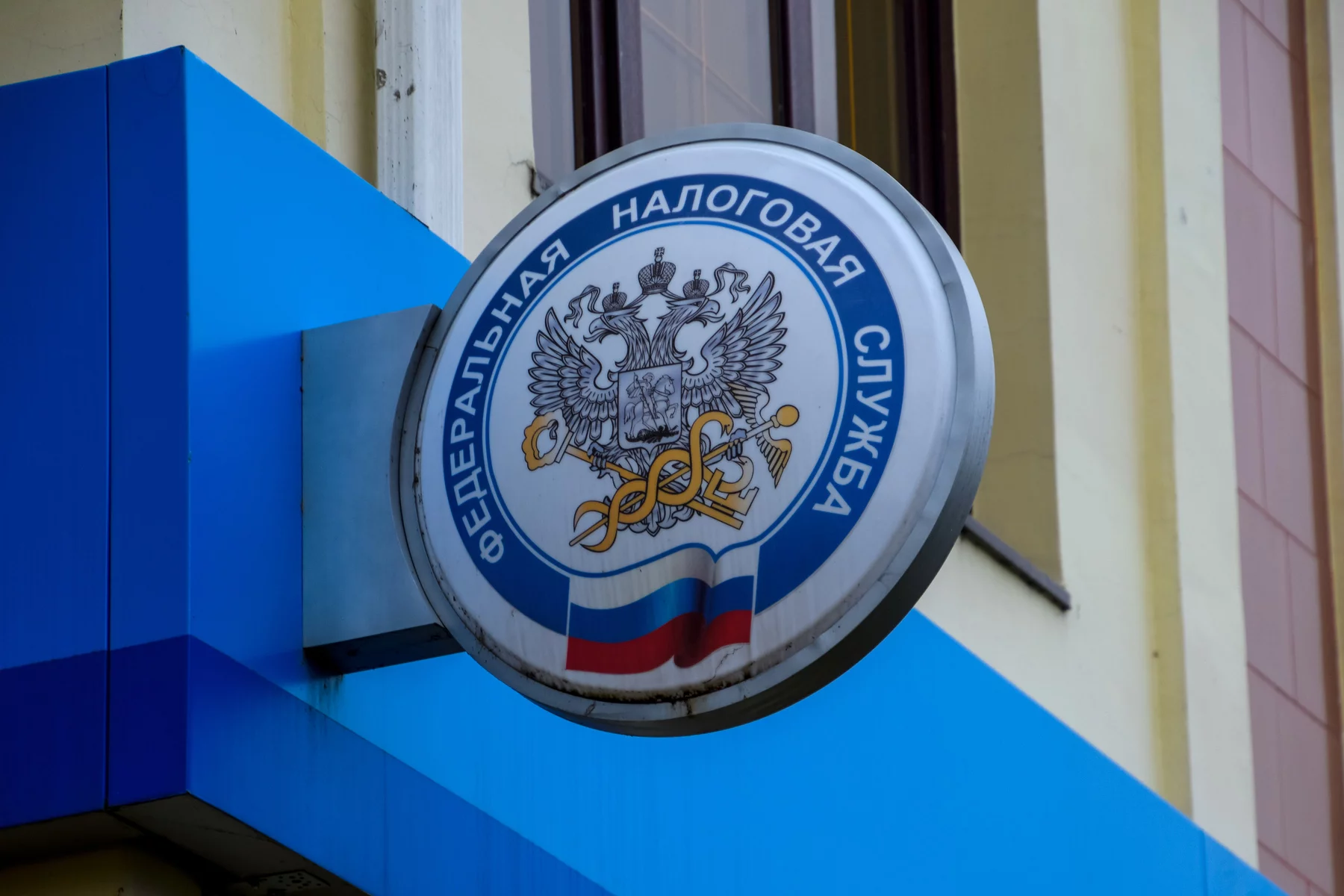
You should keep copies of the payment documents and any other tax-related documents for up to four years. Also, after submitting a tax declaration, the taxpayer can contact the Russian tax authority to check if there are additional taxes, fees, or fines owed.
You may be required to attach the following documents to your Russian tax declaration:
- Copy of your passport
- Employer certificate for employee income received outside the RF, which must indicate the specific date of each payment
- A notarized power of attorney if an individual is submitting the declaration through a legally authorized representative
- All support documentation for deductions, if claimed
You can file accounting documentation and tax returns online, at a tax office or via authorized operators. Only high-earning taxpayers can file tax returns directly to the tax authority electronically via special software. This is not available for use by the general public or small to medium-sized businesses.
According to Russian tax laws, relevant documents for the calculation and payment of taxes should be kept for at least four years.
Self-employed income tax rates in Russia
Self-employed people in Russia pay the standard income tax rates. Foreigners with a temporary or a permanent residence permit are eligible to register as an individual entrepreneur (индивидуальный предприниматель) or IP (ИП), in which case different tax rates apply.
In 2022, Russia introduced a new experimental tax regime in Moscow, Kaluga Oblast, and the Republic of Tatarstan. Corporate and entrepreneurial taxpayers will be able to either be taxed at 8% on their income or 20% on their income minus expenses. The regime is expected to be trialed until 2027, and any business with less than 60 million ₽ taxable income and fewer than five employees may apply.
Russian income tax deductions
Official residents can reduce their Russian income tax bills via deductions and allowances. These are typically not available to non-residents. Therefore, deductions only apply to earnings subject to the progressive Russian tax rate. They are not applicable to taxes you pay at any other rate. You can file declarations for tax deductions at any time of year.
Deductible expenses are available when buying property in Russia, paying tuition fees, medical treatment, or making payments to charity.
The main deduction from income taxes in Russia applies to children. The exemption is 1,400 ₽ for the first child, 2,800 ₽ for the second child, and 6,000 ₽ for the third child onwards. It does not matter where the children live when applying for this tax deduction. However, to qualify for a deduction of child tax, you must be earning a cumulative annual income of less than 450,000 ₽.
Individuals may also deduct the costs of their own education in licensed institutions (within limits) and for their children’s education (up to 50,000 ₽ per child).
Donations to certain non-commercial organizations and charities are deductible from taxable income (within the limit of 25% of income taxed at 13%).
Property and wealth taxes in Russia
Neither Russians nor foreign nationals pay taxes when buying real estate or other assets. A foreign national can buy an apartment, a country house, a garage, and even land (for private housing or private subsidiary farming) except in border areas, regions with special regimes, forests, nature reserves, and closed administrative areas.
Net wealth and net worth taxes are not levied in Russia.
Russian property tax
Russian property tax is paid by the owners at a maximum rate of 2.5% of the cadastral value of the property as determined on 1 January. From January 2025, the maximum allowed rate rose from 2.2% to 2.5% for properties with a cadastral value of more than 300,000,000 ₽.
In general, you pay Russian property tax annually as part of your tax return application. You can find more information on Russian property tax at the Russian tax authority.
Any owner of land and the property located on it pays Russian land tax rate set by local authorities. This maximum rate for properties with a cadastral value of more than 300,000,000 ₽ rose from 0.3% in 2024 to 1.5% in 2025. The payment process is similar to that for property tax.
Taxes in Russia on rental income
Rental income gained by residents is taxed at the progressive rate. Non-residents are subject to a tax rate of 30%, which is typically withheld at the source. If such rental income is received by an international legal entity that does not have a permanent organization in Russia, such an entity is also subject to holding income tax on gross rentals at 30%.
Russian capital gains tax
There is no separate capital gains tax in Russia. Instead, gains from the disposal of property and assets are subject to income tax at the progressive rate.
Tax residents are eligible for a statutory exemption on all property sold during a calendar year. The exemption is limited to 1 million ₽ in the case of real estate and 250,000 ₽ for other property. Proceeds from the sale of real estate are excluded from taxation for both residents and non-residents if the property is owned for more than five years (with certain exceptions).
Inheritance and gift tax rates in Russia
There is no inheritance or gift tax in Russia. In case of death, heirs do not have to pay personal income tax for the deceased. Salaries owing to resident employees must be transferred to their heirs without taxes being withheld.
However, gifts of real estate, shares, and vehicles by non-family members are subject to personal income taxes, payable by the recipient. Gifts from immediate family – spouses, parents, grandparents, children, grandchildren, siblings, and half-siblings – are exempt.
Gifts to non-residents are taxed at 30%.
Corporate tax rates in Russia
The benchmark rate of Russian corporate tax on profits is 25%, up from 20% in 2024. Companies are also taxed 13% on dividend profits. However, corporate taxes in Russia and allowable expenses vary depending on the company structure.
In the case of self-employed persons, note that individual entrepreneurs do not pay profit tax and are subject to personal income tax on their business profit.
Advice on tax rates in Russia
Although taxes in Russia appear straightforward, there are a number of exceptions and deductions available to resident and non-resident taxpayers alike. The tax system is fluid, and many legal requirements may not be applicable in practice thanks to additional exceptions.
There is also wide scope for interpretation. As such, it is advisable for expatriates to seek expert advice before determining the likely tax consequences and finalizing their returns.
